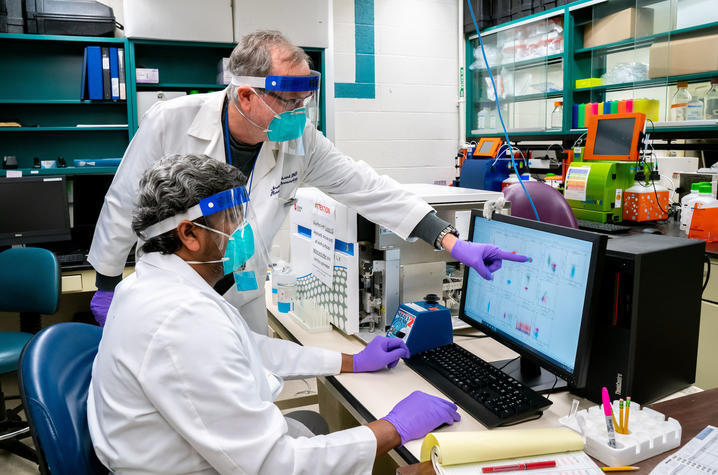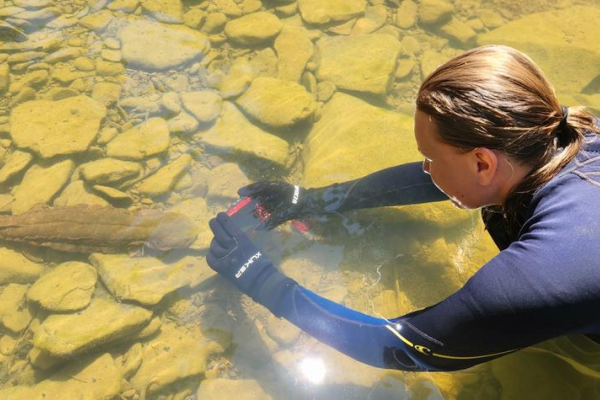COVID-19 Vaccine Candidate Tested at UK Shows Positive Preclinical Results

PDS Biotechnology, a clinical stage immunotherapy company, has announced positive results from preclinical testing conducted at the University of Kentucky College of Medicine of its COVID-19 vaccine candidate, PDS0203.
PDS0203 stands out among COVID-19 vaccines currently in development because it includes a vaccine technology pioneered by PDS Biotech called Versamune®, which stimulates important parts of the immune system to activate T cells.
Versamune® activates an important immunological signaling pathway known to be essential in the induction of both anti-viral and anti-tumor immune responses. It also more efficient at presenting the disease-associated protein to immunological pathways that activate both CD8 (killer) and CD4 (helper) T cells that can recognize, kill and protect against a specific disease.
“The most effective vaccines stimulate both antibody and T cells because both of those arms of the immune system are important to eliminate different viral infections,” said Jerry Woodward, a professor of Microbiology, Immunology and Molecular Genetics who led the preclinical study at UK. “While many of the vaccines out there stimulate a good antibody response, they don’t always activate T cells. That’s one of the key advantages of the Versamune® technology.”
PDS0203 combines Versamune® nanoparticles with a protein recognized by the human immune system that is derived from SARS-CoV-2, the virus that causes COVID-19. Prototype vaccines were tested at UK based on various recombinant SARS-CoV-2 proteins, including protein constructs created by UK’s Protein Core lab.
In mouse models, PDS0203 showed strong activation of both protective antibodies as well as highly active and potent virus-specific CD8 killer and CD4 helper T cells within 14 days of treatment. PDS Biotech is submitting the findings to a peer reviewed scientific journal and is expected to advance the PDS0203 vaccine to a phase 1 safety and immunogenicity clinical trial in humans.
To test the antibody arm of the immune response, mice are vaccinated and serum is separated from blood samples and tested for the amount of antibodies that will bind to the protein. To test the T cell arm of the immune response, T cells are isolated from the mice and tested for their ability to directly respond to peptides, or short pieces of protein, which are derived from the SARS-CoV-2 protein. The results have been promising, Woodward says.
“Vaccination with the recombinant proteins including the spike protein alone elicits lower levels of antibody response and almost no T cell response,” Woodward said. “When Versamune® is added, it dramatically increases both the antibody and T cell immune responses.”
PDS Biotech contracts with expert labs like Woodward’s for independent analysis of vaccine efficacy and research in the development of novel cancer therapies and infectious disease vaccines. Woodward’s lab has been working with the company for several years, and recently received funding from the National Institutes of Allergy and Infectious Diseases to complete preclinical development of a Versamune®-based universal influenza vaccine to provide broad protection against multiple strains of the flu virus. This spring, the focus of Woodward’s collaboration with PDS Biotech expanded primarily from cancer to address the COVID-19 pandemic.
Versamune® presents unique potential for a vaccine to provide the level of immune response needed for protection against COVID-19, Woodward says.
“We’re optimistic an effective COVID-19 vaccine will be available relatively soon. There are probably over a hundred companies working on different vaccines and a lot of them are probably going to work," Woodward said. "I believe that the Versamune®-based vaccine due to its mechanism of action, simplicity and preliminary efficacy and human safety data, has excellent potential to be one of the more successful global vaccines."


